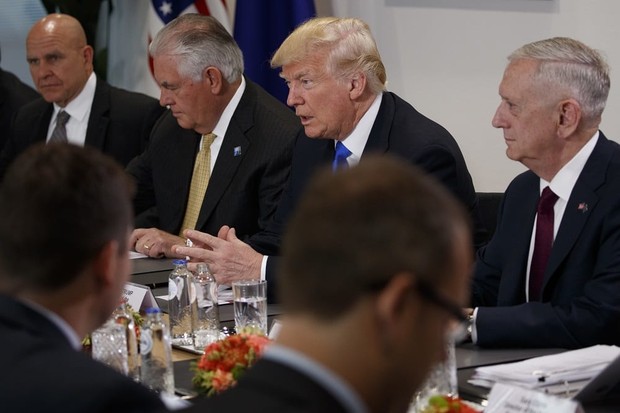
President Donald Trump speaks during a meeting with President of the European Commission Jean-Claude Junker and European Council President Donald Tusk at European Union headquarters, Thursday, May 25, 2017, in Brussels. From left, National Security Adviser H.R. McMaster, Secretary of State Rex Tillerson, Trump, and Secretary of Defense Jim Mattis. (AP Photo/Evan Vucci)
Perhaps the biggest loser when President Trump finally abandoned the ill-considered agreement Obama had cut with the terrorist regime in Tehran was not Iran but Europe, in general, and Germany, in particular. One of the first acts of newly confirmed ambassador to Germany, Richard Grenell, was to warn German companies that they need to start winding down operations in Iran, forthwith. This has resulted in all manner of Euro butthurt. This is via Axios:
European Council President Donald Tusk expressed a frustration that’s been bubbling up across Europe this week when he said of President Trump, “with friends like that, who needs enemies?”
Why it matters: Outraged that Trump spurned their pleas on the Iran deal, fearing the prospect of U.S. sanctions on steel and aluminum and at odds with Trump on key issues like climate change and the U.S. embassy move in Israel, Europe’s leaders are warning they could go their own way.
- “Very senior” U.K. official to the BBC: “The Americans can’t expect us to follow them round with a dustpan and brush putting Humpty Dumpty back together again.”
- French finance minister Bruno Le Maire: “Do we want to be vassals who obey decisions taken by the United States while clinging to the hem of their trousers?”
- German chancellor Angela Merkel last week: “It’s no longer the case that the United States will simply just protect us. Let’s face it: Europe is still in its infancy with regard to the common foreign policy. That is the task for the future.”
Sure, they are upset, but, so what?
The BIG idea is that the EU will dust off a law they passed to protect European companies from US sanctions for dealing with Cuba:
The European Commission will on Friday launch a trade defense law in response to U.S. economic sanctions against Iran in a bid to keep the nuclear accord with Tehran alive, Commission President Jean-Claude Juncker said Thursday.
Juncker told reporters in Sofia that EU leaders decided Wednesday night to activate the so-called blocking statute, which bans European companies from complying with the U.S. sanctions against Iran.
“We have the duty, the Commission and the European Union, to protect our European businesses,” said Juncker, adding: “We must act now and we will act now. That’s why we are launching the process to use the 1996 ‘blocking statute’ to neutralize the extraterritorial effects of U.S. sanctions on European companies … We will do that tomorrow morning at 10:30.”
The blocking statute would forbid EU companies, under threat of punishment, to cancel business ties with Iran because of the U.S. sanctions. To do that, will need to update the law to include Donald Trump’s sanctions, a process that could take up to two months, depending on how fast the European parliament and Council vote on the update. EU countries need to approve the text by a qualified majority, meaning skeptics like Germany alone would not be able to veto the law.
Russia is getting in on the disinformation act with this:
Rumour that Europe is to ditch the US dollar in payments for Iranian oil and use the Euro instead to bypass Trump's sanctions – source — RT Business News https://t.co/jGhBKnDo5E
— Martin MacDonald (@Innealadair) May 16, 2018
Let’s address these in reverse order.
The idea of the Euro being used as a replacement for the dollar…or the Chinese yuan…have been floated for years. So far it hasn’t happened. Will it? Who knows. I think the best bet is against it because by bringing in a lot of weak, Third Worldish economies, and a failure to obliterate national sovereignty, the Euro has structural problems that, in my view, are not resolvable. But even if they do, so what? If Europe wants to use the euro, the yuan, or Yap Island stone coins, that is their right. It doesn’t affect the US economy or the ability of the US to engage in trade. This is more like a teenager wanting his own car so he doesn’t have to ask Dad to borrow it.
The protection law, in particular, is bunk. The US wasn’t going to make a big deal about European companies trading with Cuba because Cuba is an irrelevance. Iran is different for two reasons. First and foremost, President Trump left the deal and will take the passage of this law as a personal affront–which it is designed to be. And he will not ignore it. Secondly, Iran is a genuinely bad actor and regional threat that we’ve made a decision to confront. And the Europeans know this:
The EU’s so-called blocking statute bans any EU company from complying with US sanctions and does not recognize any court rulings that enforce American penalties.
But it has never been used and is seen by European governments more as a political weapon than a regulation because its rules are vague and difficult to enforce, serving mainly as a warning to the United States.
“Indeed the EU blocking regulation could be of limited effectiveness there, given the international nature of banking system and especially the exposure of large systemic banks to US financial system and US dollar transactions,” Dombrovskis told the European Parliament.
“There are some difficult issues which we will need to address. We are working on how to exactly address those issues,” Dombrovskis said.
The problem is that European banks have to use the US-dominated international banking system. If they handle money from companies doing business with Iran, then they can’t engage in a wide variety of international transactions. This gives the US immense clout. In February, the US Treasury Department accused, just accused, a major bank in the Baltic states of laundering money for North Korea. Within a week it was in liquidation because depositors fled for fear of having their assets frozen.
European companies are seeing the writing on the wall and moving to limit their exposure on Iran. For instance:
Despite the tough diplomatic rhetoric, however, the chances of the Iran nuclear deal surviving the impact of US sanctions were dealt a blow when the Danish shipping group A P Moller-Maersk said it was joining an exodus of companies ceasing commercial activity in Iran.
Maersk, the world’s largest oil shipping container firm, said on Thursday it would honour customer agreements entered into before 8 May, but then wind them down by 4 November, as required by the reimposed US sanctions.
The announcement came after the French oil firm Total announced on Wednesday that it was going to pull out of its 50.1% stake in the South Pars 11 oil field. Total said it would only retain its investment if the US gave it a specific exemption from the planned sanctions. Its joint venture partners in China are likely to take over its share of the investment.
And European leaders know that the anti-sanctions law is just anti-Trump theater:
French President Emmanuel Macron ruled out on Thursday any trade war with the United States over its withdrawal from the Iranian nuclear deal as a wave of European companies quit business with Tehran, fearing the global reach of U.S. sanctions.
…
Macron acknowledged the predicament of firms wanting to trade with Iran or invest there, especially multinationals with close business ties to the United States. But he made clear bigger matters were at stake.“We won’t start a strategic trade war against the U.S. about Iran,” he said on arriving for a second day of a European Union summit in Bulgaria. “We’re not going to take counter-sanctions against U.S. companies, it wouldn’t make sense.”
As the old saying in the Royal Navy went, “growl you may but go you must.” The Europeans are going to act out a bit and vent some spleen but ultimately they are going to fall in line for the simple reason that it is in their interests to fall in line. And if the EU does push the issue, it will find that governments with substantial financial interest in the US are going to respect the sanctions regardless of the EU law.
=========
Like what you see? Then visit my story archive.
Follow @streiffredstate
I’m on Facebook. Drop by and join the fun there.
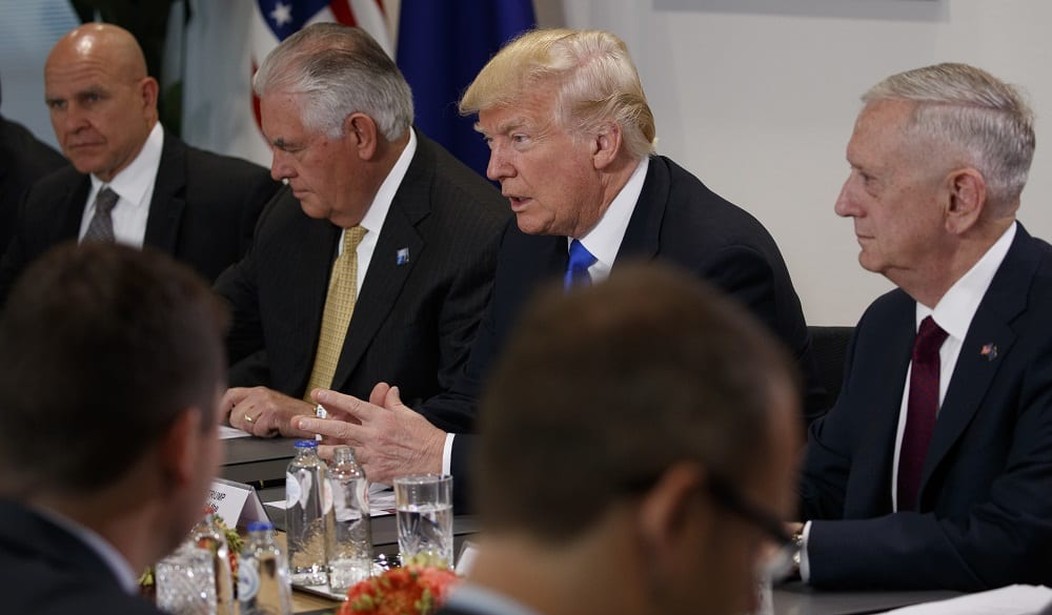




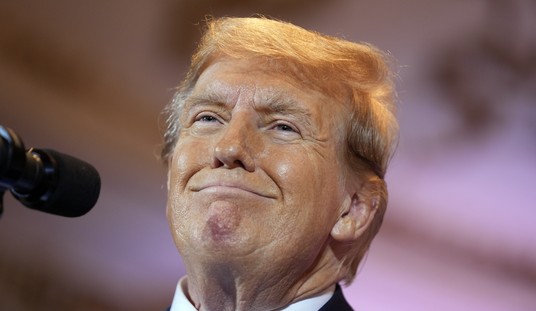

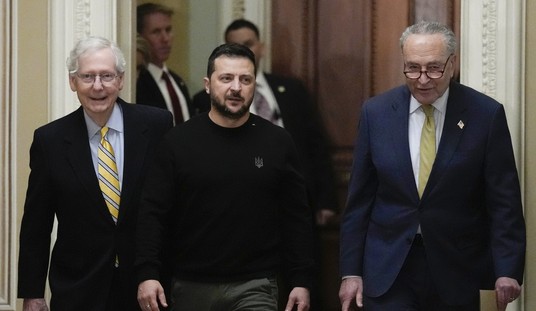





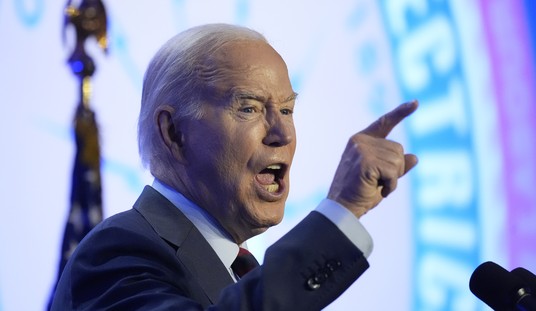
Join the conversation as a VIP Member